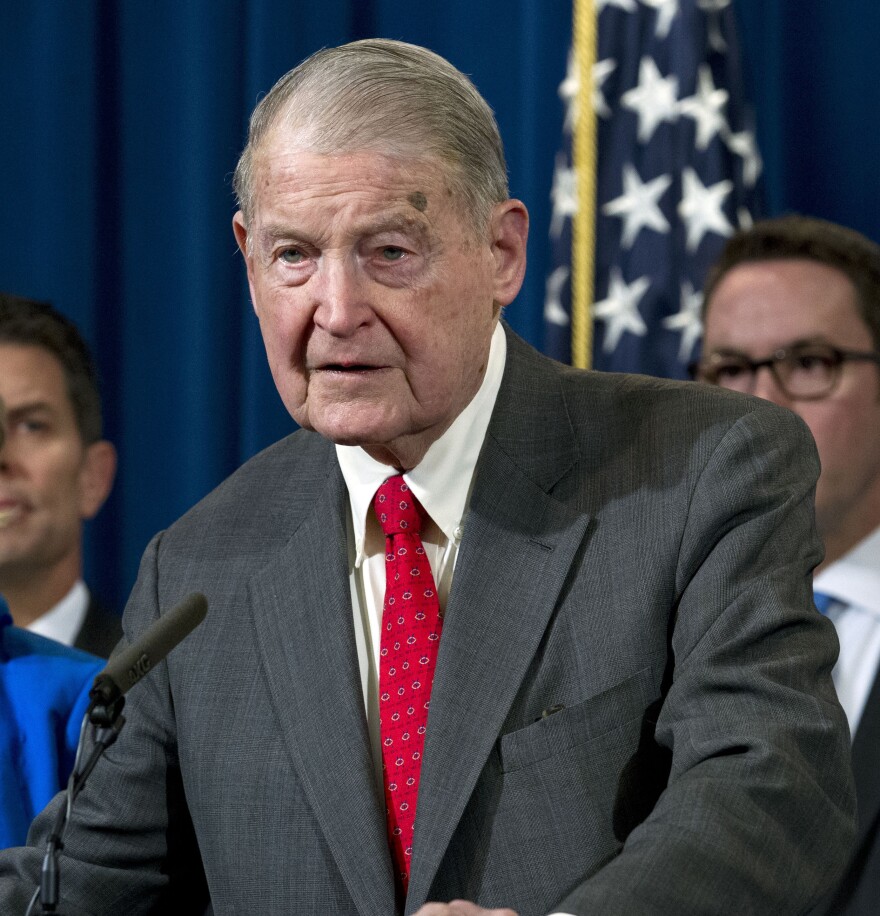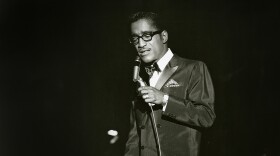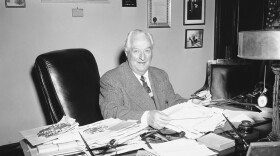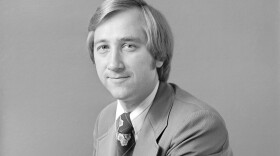Recently, William Webster died at age 101. He is the only person to head both the Federal Bureau of Investigation and the Central Intelligence Agency. As FBI boss, he had some dealings with Nevada.
Webster was a Missouri native who served as a federal judge before resigning in 1978. Although Webster was a Republican, Jimmy Carter chose him as director of the FBI, which had been caught up in numerous scandals. He left the FBI in much better shape … unless you asked some Nevadans. Their perspective was different.

That’s largely because of the special agent in charge Webster appointed to the Las Vegas office: Joe Yablonsky, who became extremely controversial during his tenure, which ended with his mandatory retirement in 1983. Yablonsky was known as “the king of sting.” Webster said he wasn’t a fan of stings, but sometimes they proved necessary. Yablonsky led a big one here, Operation Yobo, which stung state senators, county commissioners, and other leading politicians.
As FBI director, Webster told the President’s Commission on Organized Crime, “Today, there are few businesses or industries in our communities that are not affected by organized criminal enterprises. This brand of crime is costing the American people billions of dollars each year. Although these criminal groups have often been made glamorized in books, movies, and televisions, they are associations of career criminals who have utter contempt for our laws and the rights of others. In short, they are purveyors of crime, violence, death, and human misery.”
Not everyone in Nevada shared this sentiment, but a number of us did and worked to get rid of organized crime. During Webster’s tenure, the FBI and Yablonsky targeted mobsters involved in skimming and worse at several Strip and downtown properties. Yablonsky also led an investigation of U.S. District Judge Harry Claiborne that culminated in Claiborne’s impeachment, conviction, and removal from office. All of these people and issues prompted strong feelings, and that’s an understatement.
When Webster went before the Senate Intelligence Committee in 1987 for confirmation as CIA director, Nevada’s Chic Hecht questioned him about both the Claiborne case and Yablonsky. Webster said that he wasn’t proud of everything done in connection with it but stood by the outcome. When Hecht asked him about Yablonsky, Webster replied, “I think he did a very good job. Las Vegas is a difficult climate in which to live, and I think he made some mistakes, some personal mistakes, for which he was accountable and was held to account. But in terms of his investigative efforts, when I look at the indictments that came down during his tenure there, I am very pleased that I sent him.” Webster said he disciplined Yablonsky for using bad judgment on one occasion, and was critical of him othertimes, but considered those minor. Not everyone shared his favorable view of Yablonsky. Those critics ranged from U.S. Senator Paul Laxalt and Las Vegas Sun publisher Hank Greenspun to attorney Oscar Goodman, who represented Claiborne. Webster’s aides said he faced considerable pressure during that time.
As Harry Truman said, if you can’t take the heat, get out of the kitchen. William Webster took some heat. Regardless of whether you agree or disagree, that’s part of being in government. Take it from the guy who ran against Hecht!








